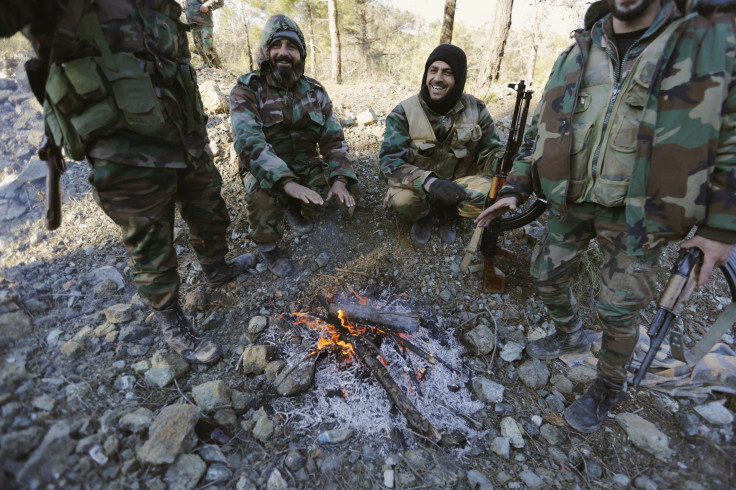Amid Syrian Civil War Ceasefire, ISIS Fighters Ousted From Strategic Region

The Russian-supported Syrian Army regained control of a region near the strategic northern town of Latakia Thursday, forcing the last Islamic State group militants in that area to flee. The ISIS fighters were ousted from the Shellef fortress in the town of Kensaba, nearly 200 miles from the country’s capital and stronghold of authoritarian leader President Bashar Assad, the Syrian Arab News Agency, a semi-government-owned news website, reported.
The Syrian Army is pressing hard to retake towns and regions before a ceasefire is expected to start at some point Thursday. The ceasefire, brokered by U.S. Secretary of State John Kerry in Munich, Germany, was announced Friday but will allow fighting to continue against ISIS and al-Nusra Front militants. Hostilities between Assad’s Syrian army and the rebel fighters will cease.
#ISSG also agreed that cessation of hostilities will begin in one week, after consultations by Syrian parties.
— John Kerry (@JohnKerry) February 12, 2016
However, Assad raised concerns earlier this week any ceasefire would not hold because some parties involved in the war were not aligned.
“We hear about them requesting a ceasefire within a week,” Assad said. “OK, then who is capable of bringing together all these conditions within a week? No one. Who will speak to the terrorists if a terrorist organization refused to adhere to the ceasefire, who will make them accountable? Who, as they say, will bomb them?”
Despite Assad’s comments, humanitarian aid has already begun rolling into besieged towns across the country where some Syrian civilians are said to be starving to death.
Russia first became involved in the nearly 5-year-old civil war in September, taking part in bombing raids and providing heavy weapons and aid and to Assad’s forces, which up to that point had been beaten back toward the west of the county by a mix Syrian rebels and ISIS. While Moscow’s involvement did not sit well with the U.S.-led coalition that is also taking part in bombing campaigns against the militant group, it has allowed Assad to tighten his grip on power.
© Copyright IBTimes 2025. All rights reserved.






















